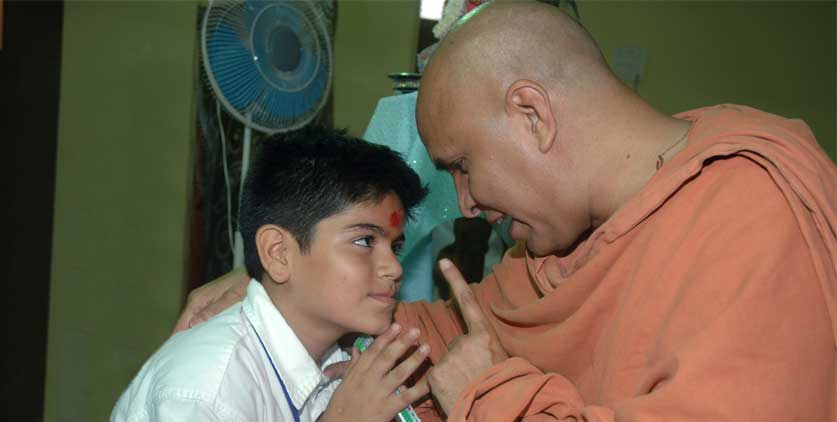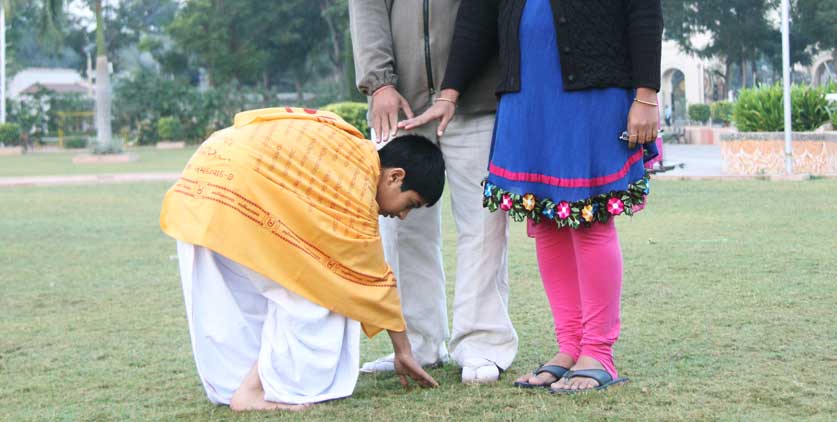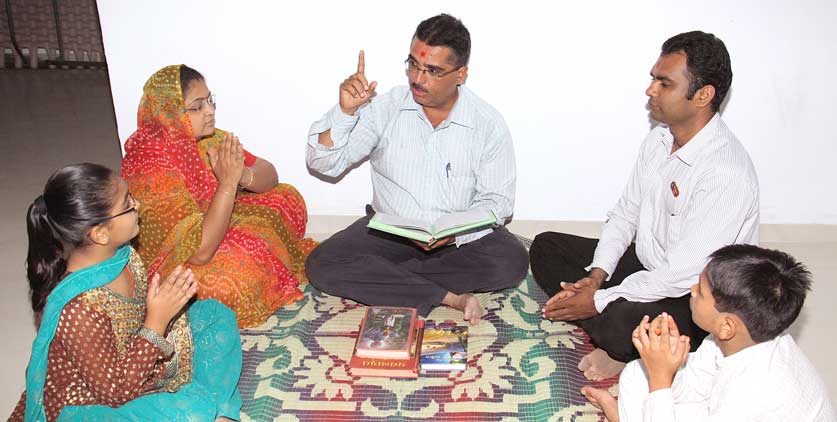
Spiritual Practices
Sanskar

In a large city, on a cold, rattling night on the footpath, some poor people were shivering. The cold was unbearable. Suddenly, a car driver appeared. He felt compassion for these shivering people. So, overnight, he arranged to bring a truck full of new blankets. And each shivering person was given a blanket.
In the morning, everyone woke up. They found a new blanket each. They were delighted, and everyone went to a nearby shop, sold their blankets at half price, and bought alcohol with that money. Then, later that night, the same individuals found themselves shivering again on the streets, just as before.
The reason for such behavior was the lack of upbringing or values. They wouldn’t have resorted to such actions if they had been instilled with proper values.

Even though people achieve high degrees and qualifications today, they often face problems and conflicts. For example, why would a highly educated doctor or lawyer need to charge high fees for their sake? Or why would a well-paid bank manager still struggle to manage finances at home?
Similarly, despite spending significant time in religious or spiritual activities, some individuals might find that their family members still don’t get along well with each other.
A formerly impoverished child, upon becoming a certified teacher through perseverance, may overlook their complicated past and focus on earning more money by charging higher fees for tutoring services.
The underlying reason behind these issues is often society’s lack of strong moral values and character. People prioritizing material success over ethical principles can lead to various problems and conflicts.
In simpler terms, the saying “When a character is lost, everything is lost” highlights the importance of maintaining good values and morals in life.

“Sanskar (Values) is not something that can be bought in the market. Sanskar can only be imparted by the Satpurush.
When a child argues back to their parents, they might say, ‘He doesn’t have respect.’ But parents do not think that ‘We fight a lot, quarrel with each other, and even speak against our parents at home. Also, we do not serve them. Is this Sanskar or lack of it?’”
“The child’s behavior is a reflection among society’s members, particularly their families’ mannerisms shape their life’s trajectory. Whether the child learns to worship or learns to argue or misbehave, it’s all a part of elders observation.”
A king set out to conduct secret inspections of the city. Upon entering one house, he saw a parrot in a cage repeating, “Beat him, kill him, break him, steal him.” As the king continued, he entered another house with a parrot in a cage. This parrot, however, was saying, “Come in... welcome... sit...sleep... enjoy and have fun.”
The king concluded from the speech of both parrots, “The first time you visit a house, it must be the home of a butcher or slaughterer, while the second house must belong to a nobleman because parrots learn to speak from the environment of their home.”
We may diligently save money, gold, houses, cars, and other assets, but have we truly saved anything for our kids? The lack of values behind our actions indicates that we haven’t paid attention to the ingrained values within us. A father once said, “I find immense joy that I may not have given my child wealth, but I have certainly given them values. They possess good values even if they don’t inherit millions or billions. Thus, they will naturally prosper in life.”
A philosopher once said, “If you want to change the world, change the children.” Children possess an unprecedented power that can shape the future. However, a child’s potential values get derailed in today’s modern culture. Therefore, especially their parents are responsible. Sometimes, a father doesn’t even know the study grade his child is on. So, how can we expect them to hold more hope?
At the age of 35, Dacoit Sohansinh was caught after committing 108 murders and was sentenced to death. At that moment, he uttered his last words, saying, “When I was little, I used to kill insects, then birds, stray dogs, and finally, I started killing humans. But if my mother had stopped me from killing insects and birds, I would never have reached this situation. So, for my punishment, my mother is the one who is primarily responsible.”
In the past, grandparents used to teach every night and tell them stories of the glory, bravery, and values of God. But today? Grandparents sit with children today and watch TV shows or other gruesome programs. Even in schools, lessons and poems are such that,
"ઓ ઈશ્વર ભજીએ તને, મોટું છે તુજ નામ;
“Oh God, we worship you, your name is significant;
ગુણ તારા નિત્ય ગાઈએ, થાય અમારાં કામ."
We sing your praises daily; may our deeds be yours.”
જ્યારે આજે કવિતા આ પ્રકારની હોય છે.
Today, poems are like this.
"કાળુડી કૂતરીને આવ્યા ગલુડિયાં..."
“The black dog births the doggie...”
Thus, SMVS centers serve as vital hubs for instilling values, nurturing bonds, and fostering growth for children and families alike. Emphasizing their significance can encourage participation and engagement, enriching lives through shared experiences and meaningful connections.













